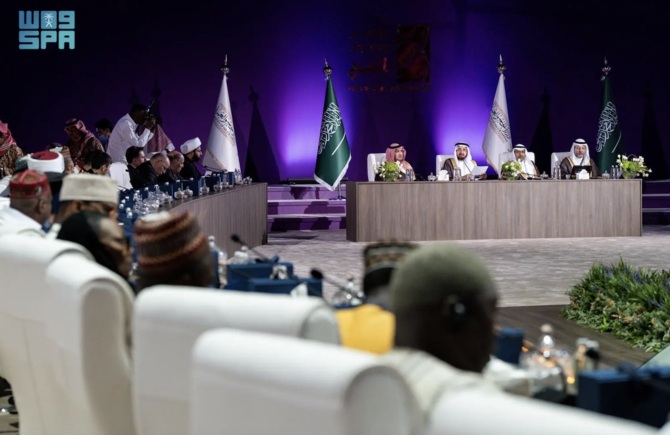Saudi Minister Strengthens Global Coordination Ahead of Hajj 2026
Riyadh – Saudi Minister of Hajj and Umrah, Tawfiq bin Fawzan Al-Rabiah, held a major coordination meeting with ministers, grand muftis, and Hajj officials from across the Muslim world. The gathering brought together over a hundred representatives to discuss preparations for the upcoming Hajj 2026 season.
The meeting, held in Riyadh, focused on enhancing organizational procedures, improving digital systems, and strengthening international collaboration. It was organized alongside the fifth edition of the Hajj Conference and Exhibition, underscoring Saudi Arabia’s leadership in global Hajj management.
Al-Rabiah praised the successful completion of the Hajj 2025 season, thanking all participating nations for their cooperation and professionalism. He acknowledged the combined efforts of the Hajj offices that helped millions of pilgrims perform their rituals safely and comfortably.
The minister urged all Hajj offices to finalize their contracts for services by early January 2026.
He emphasized that early planning ensures smooth coordination and guarantees pilgrims receive top-quality services throughout their spiritual journey.
Key regulatory updates were announced, reflecting Saudi Arabia’s ongoing commitment to modernization and digital transformation in Hajj operations. All service contracts, including accommodation and camp arrangements, must be finalized well ahead of schedule to ensure full readiness.
Among the new measures, Al-Rabiah stressed the importance of issuing Hajj visas before March 20, 2026, with no extensions beyond that date. He also called for awareness campaigns to educate pilgrims about avoiding unauthorized travel or fraudulent agencies.
A “health capability certificate” will now be mandatory for all pilgrims, verified through the Masar electronic platform. This initiative aims to safeguard the well-being of pilgrims and ensure medical readiness during the pilgrimage.
The minister also announced strict regulations for financial transactions, requiring all payments related to sacrificial animals to go through authorized channels only.
This includes the official Saudi Project for the Utilization of Hady and Adahi, ensuring transparency and ethical compliance.
In a push toward digital efficiency, the Nusuk card will be made mandatory for entry into the Grand Mosque and other holy sites.
This digital identification will streamline access control and enhance the overall safety of the pilgrimage experience.
Al-Rabiah emphasized that all administrative, medical, and media staff information must be uploaded between November and December.
The aim is to ensure smooth coordination between international delegations and Saudi authorities during the pilgrimage period.
He also urged Hajj offices to finalize flight reservations and airline partnerships by early January 2026. This proactive approach, he said, helps manage the large-scale logistics of transporting millions of pilgrims efficiently.
All transactions, including administrative and financial processes, will be conducted exclusively through the Nusuk Masar platform.
This centralized system will improve transparency, reduce errors, and promote faster communication between global Hajj missions.
Al-Rabiah reaffirmed Saudi Arabia’s unwavering commitment to facilitating the spiritual journey of Muslims worldwide. He said these reforms reflect the Kingdom’s dedication to innovation, hospitality, and safety in every aspect of the Hajj experience.
The minister’s vision aligns with Saudi Arabia’s broader digital transformation goals under Vision 2030. By integrating smart technology, global partnerships, and sustainability, the Hajj and Umrah sector continues to evolve as a global benchmark.
Officials from multiple countries expressed appreciation for the Kingdom’s efforts to streamline procedures and ensure equality in pilgrim services. The collaborative approach, they noted, enhances unity among Muslim nations and strengthens trust in Saudi Arabia’s Hajj leadership.
The meeting concluded with a renewed commitment to improving coordination between domestic and international authorities.
With continued innovation and partnership, Hajj 2026 is expected to set new standards in organization, safety, and spiritual excellence.


